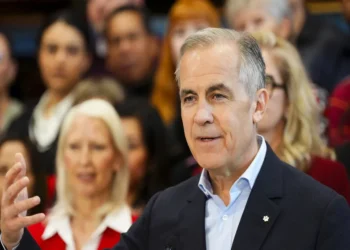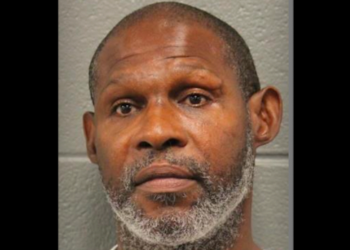For years, Christianity in America has seen a downward turn in participation and open discussion of its principles. Public messaging has framed religious belief as controversial, outdated, and even offensive. Entertainment projects, whether music, movies, or shows, have pushed themes of faith aside to avoid alienating audiences, believing that even acknowledging these ideas would lead to less support and harsh criticism.
For a while, the impact of removing God from society went largely unnoticed, until it became undeniable.
The mental health of young people has deteriorated, more homes have been broken, and ideas that were reprehensible to most of us not that long ago have become normalized. Any sort of moral expectation is seen as oppressive. It was a line we thought we could walk forever without feeling the need to go back to our Christian roots as a nation.
However, our natural desire for meaning, purpose, and hope that there is something bigger than ourselves out there seems to be catching up, and the next generations are taking action.
Throughout 2024 and early 2025, a quiet but powerful spiritual revival has begun to take root, particularly among teens and young adults. From surging Bible sales to young people walking themselves to their local church buildings and even mainstream platforms like American Idol embracing Christian themes, evidence of a renewed hunger for faith is becoming undeniable. This resurgence reflects a broader societal shift, as Americans, especially Gen Z, seek meaning and community focused on a greater purpose.
One of the most striking signs of this revival is the growing number of young Americans converting to Catholicism. The New York Post reports, “A notable number of Gen Z and younger millennials are eschewing the ‘nones’ — those with no religious affiliation — and instead embracing the rituals, traditions, and community of the Catholic Church.” This trend is particularly strong among young men, as demonstrated by a 27-year-old churchgoer, who explains, “The lack of purpose and truth in contemporary society leads them to seek meaning. Watered-down versions of Christianity have no attraction.”
This movement seems to be a backlash against the constant focus on individualism and relativism that have left many feeling directionless. Because of this, young adults are now finding purpose in Catholicism’s structured rituals and deep-rooted doctrine.
Aside from Catholicism, attendance in church in general is surging, especially among Gen Z. A Bible Society report called “The Quiet Revival” found that church attendance among 18- to 24-year-olds in the UK quadrupled from 4% in 2018 to 16% in 2024, with young men leading the way. While the report focuses on the UK, similar trends are being seen across the U.S., where young people are increasingly finding themselves drawn to communities of faith.
This steady surge in religious participation seems to also be in response to the mental health crisis gripping Gen Z. A 2023 study from Oxford and Swansea University found that attending religious services can be linked to lower anxiety and depression. In the U.S., this aligns with what Shane Pruitt, a national director with the North American Mission Board, claimed: “The pandemic poured gas on problems already there. Gen Z is coming to the end of themselves at a much earlier age. They are looking for hope, and we get to slide in with the gospel.”
Churches offering authentic community and thought-provoking teaching are growing most, while more shallow models are fading.
Another clear indicator of this revival is the dramatic rise in Bible sales. The Washington Times reports that Bible sales in the U.S. surged by 22% in 2024 compared to 2023, reaching 13.7 million copies in the first 10 months alone, despite overall book sales growing by less than 1%. This wave is driven by first-time buyers, particularly young people, who are turning to Scripture for answers. Publishers say the Bible sales trend is due, at least in part, to innovative marketing, new Bible designs, and a cultural moment marked by “general anxiety in the world.” Social media influencers on TikTok and YouTube have also played a role, openly sharing their faith journeys and encouraging followers to explore Scripture.
Perhaps the most unexpected sign of this revival is the reemergence of Christian themes in mainstream entertainment. On Easter Sunday, April 20, 2025, American Idol aired a “Songs of Faith” special, celebrating Christian and gospel music. The Christian Post describes the event as a “profound celebration of the spiritual roots deeply embedded in American culture.” Judges Luke Bryan, Carrie Underwood, and Lionel Richie performed worship songs alongside the remaining 20 contestants. This marks a significant departure from the show’s earlier days, when, as original producer Simon Lythgoe recalls, there was “an unspoken rule to steer clear of anything overtly religious” to keep the show secular.
The special reflects a broader cultural shift. Underwood’s faith-infused performances, like her 2005 hit “Jesus, Take the Wheel,” and the 2008 Idol Gives Back performance of “Shout to the Lord” by the Top 8 finalists, hopefully paved the way for future artists, actors, and production companies to incorporate faith into their projects as well. Lythgoe stated, “For ABC and Disney to take such a stand on this holy day and celebrate worship music is truly inspirational.” In an emotional tribute to the contestants and their willingness to participate in this national evening of Christian worship, Underwood said, “I know how difficult it is to come into the entertainment industry and bring your faith with you. It is a brave thing to do because there are a lot of outside forces that are going to tell you not to do that. I want to tell you that I’m proud of you guys.”
This spiritual revival is not without its challenges. Critics argue that some conversions may be faddish or politically motivated, and data from Arizona Christian University shows that only 6% of self-identified Christians hold a biblical worldview.
Yet the trends are encouraging: Young people are seeking faith, churches are growing, Scripture is resonating, and even pop culture reflects this shift.
After years of marginalization, Christianity is regaining its voice in America, driven by a generation hungry for truth and connection. As the Washington Times puts it, “Gen Z is sick and tired of their predecessors’ secularism.”
In other words, it’s cool to be Christian again.















